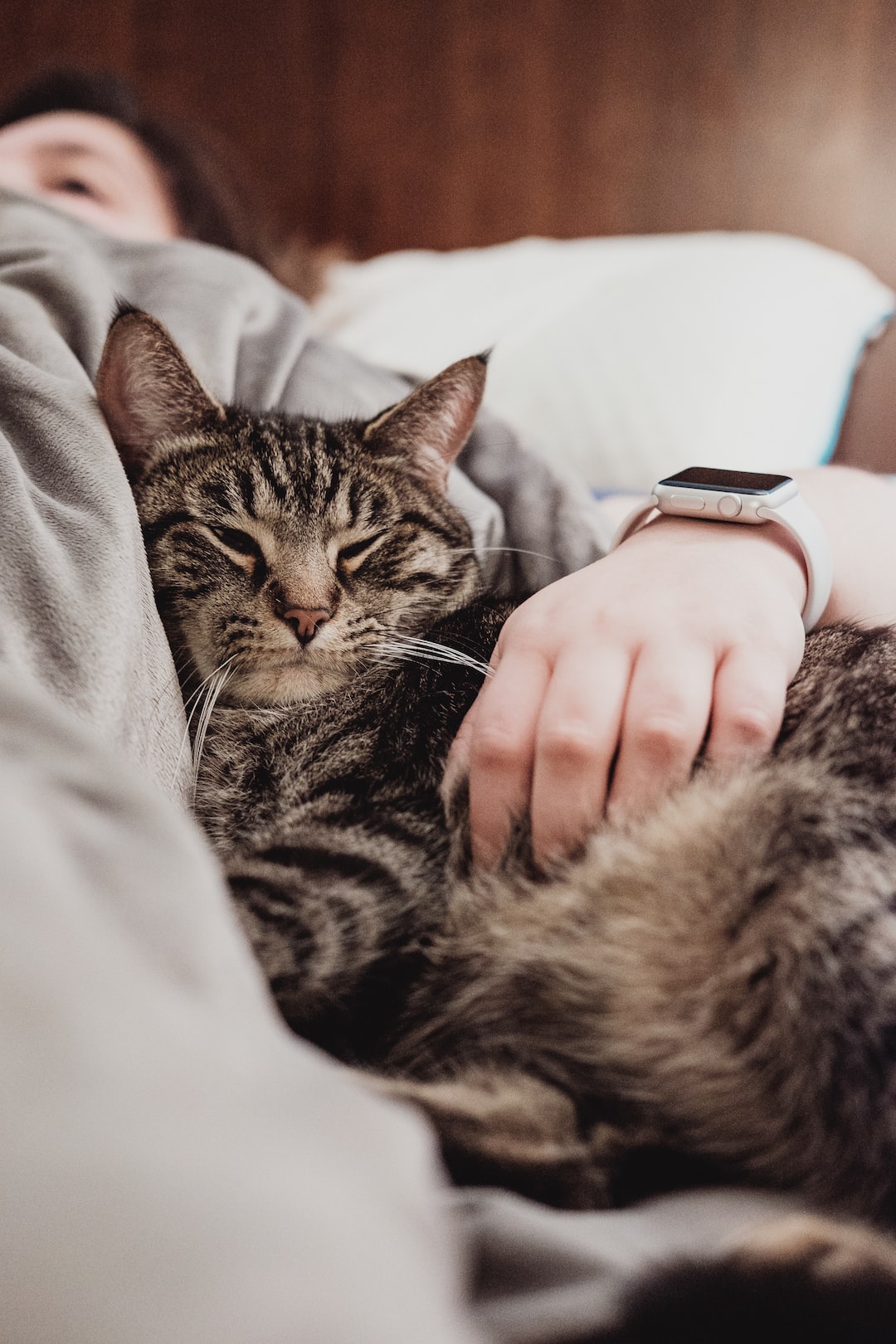The Ultimate First Pet Guide: Lifestyle, Cost, and Care Considerations

Deciding to welcome a pet into your home is one of the most exciting and life-changing choices you can make.
This furry, feathery, or scaly addition becomes not just an animal living under your roof but a bona fide family member. Here’s everything you need to consider as you embark on this pet-owning journey.
The Main Types of Pets
1. Dogs:
Lifespan: Generally 10-15 years, but this can vary widely based on breed and size.
Diet: Omnivorous, with commercial dog foods available. Some owners opt for home-cooked or raw diets.
Exercise: Daily exercise is crucial, especially for energetic breeds.
Training: Basic obedience and socialization are vital for a well-behaved dog.
Grooming: Regular grooming, including brushing, bathing, and nail trimming, is needed. Grooming needs vary by breed.
2. Cats:
Lifespan: Typically 12-15 years, though many live longer.
Diet: Obligate carnivores, requiring a meat-based diet.
Exercise: Indoor play and stimulation are essential. Some cats are leash-trained for outdoor exploration.
Training: Litter training is generally straightforward, but cats can also learn basic commands and tricks.
Grooming: Varies by breed, with long-haired cats needing more frequent brushing.
3. Birds:
Lifespan: Can range from a few years (smaller birds like budgies) to over 50 years (larger parrots).
Diet: Varies widely. Parrots eat seeds, nuts, fruits, and vegetables, while other birds have different diets.
Exercise: Flying or at least flapping their wings within safe, enclosed spaces.
Training: Many bird species are intelligent and can be trained to do tricks, mimic sounds, or speak.
Grooming: Nail and beak trimming, along with occasional baths.
4. Fish:
Lifespan: Ranges from a few years for common goldfish to decades for species like koi.
Diet: Commercially available fish food, with some species having specific dietary needs.
Exercise: Swimming within the confines of their tank or pond.
Training: Limited, but some fish can recognize their owners and be hand-fed.
Grooming: N/A, but tank cleaning and water quality management are vital.
5. Small Mammals (e.g., hamsters, guinea pigs, rabbits):
Lifespan: Typically 2-8 years, depending on the species.
Diet: Varies. Hamsters eat seeds and pellets, while rabbits need hay, pellets, and vegetables.
Exercise: Space to run and play, often in a wheel or enclosed area.
Training: Basic socialization and litter training for animals like rabbits.
Grooming: Some species, like long-haired guinea pigs, need regular brushing.
6. Reptiles (e.g., turtles, snakes, lizards):
Lifespan: Varies widely. Some turtles live over 50 years, while many snakes live 20-30 years.
Diet: Depends on the species. Some are carnivorous (like many snakes), while others are herbivores or omnivores.
Exercise: Movement within their enclosure and, for some species, outside exploration.
Training: Limited but can recognize their owners and be hand-fed.
Grooming: Minimal, but habitat cleaning is essential.
Understanding Your Lifestyle
Before choosing a pet, it's crucial to reflect on your lifestyle. If your living space is compact, like a studio apartment, it might not be the ideal environment for a large dog. But perhaps a cat, which doesn't require outdoor space, might be a perfect fit. Consider your daily routine as well.
Pets like dogs require regular walks and companionship. If your job keeps you away from home for long stretches, a more independent pet like a hamster or fish might be a better match. It's also worth pondering your physical activity levels.
If you love jogging or hiking, an energetic dog breed might be a great companion. If you're more of an indoorsy type, then a laid-back cat or a pet bird might be ideal.
Here’s a breakdown of the key points:
Living Space: Your living environment is pivotal in determining your ideal pet. For instance:
Studio Apartment: Might not be suitable for larger dog breeds that require more space to move and play.
Homes with Outdoor Space: More suited for pets that benefit from the outdoors, like certain dog breeds or rabbits.
Daily Routine: Your typical day can help determine which pet is right for you.
Busy Work Schedule: If you're regularly away from home, consider pets that are more independent and don't need constant attention, such as hamsters, reptiles, or fish.
Flexible/Remote Work: Allows more time for pets that require regular interaction, like dogs, which need walks and companionship.
Activity Level: Your personal physical activity preferences can influence your pet type.
Active Lifestyle: Those who enjoy regular outdoor activities might find energetic dog breeds to be fitting companions.
Indoor Preferences: For those who enjoy indoor activities, more relaxed pets like cats, birds, or even aquarium fish might be more suitable.
The Realities of Pet Ownership Costs
Owning a pet is a financial commitment. There's the initial cost of adoption or purchase, and this is just the beginning. Pets require food, occasional grooming, and regular veterinary check-ups. There's also the matter of toys, bedding, and potential pet insurance.
On top of the expected expenses, there are always unexpected ones, like an emergency trip to the vet after your curious cat decides to snack on a houseplant.
Here’s a further breakdown:
Initial Costs: This encompasses the immediate expenses related to getting a pet.
Adoption/Purchase Fees: Depending on whether you adopt from a shelter or buy from a breeder or store.
Starter Kit: Initial essentials like a collar, leash, food bowl, toys, and possibly a bed or cage, depending on the pet.
Routine Expenses: The regular costs associated with maintaining a pet's well-being.
Food: Depending on the size and diet needs of the pet, food costs can vary.
Grooming: While some pets might only require occasional grooming, others, especially certain dog breeds, might need regular sessions.
Veterinary Care: Regular check-ups, vaccinations, and preventive treatments contribute to this.
Additional Expenses: These are the extras, some of which might be essential for the pet's overall well-being.
Toys and Accessories: Enrichment is crucial for many pets, and toys can provide that.
Bedding: For pets that require it, like rodents or birds.
Pet Insurance: To cover potential health issues or emergencies.
Unexpected Costs: These can arise suddenly and be relatively substantial.
Emergencies: Situations like your cat eating a houseplant or your dog injuring itself during play can lead to unforeseen vet visits and associated costs.
Delving Into Pet Care Requirements
Understanding the specific needs of pets is paramount to ensuring their well-being. For instance, dogs, known for their loyal nature and playfulness, crave regular walks.
The frequency and intensity of these walks often hinge on the breed; an energetic Border Collie, for instance, will have vastly different exercise requirements than a docile Basset Hound. However, walks aren't just about physical exertion. They provide mental stimulation, a chance to train, and an opportunity for social interaction.
Cats, on the other hand, exude an aura of independence. But beneath that exterior lies a playful and affectionate creature. Toys, interactive sessions, and even controlled outdoor adventures can help channel their energy. Furthermore, grooming, especially for long-haired breeds like Persians or Maine Coons, is essential to prevent matting and maintain their coat's health.
Moving to the realm of exotic pets, the care intricacies multiply. Reptiles, for instance, may require specialized diets, sometimes necessitating live food.
Birds, particularly exotic ones, might need specific fruits, nuts, and seeds to maintain optimal health. Beyond feeding, maintaining their habitats, be it a terrarium or a cage, requires regular cleaning, temperature checks, and more to replicate their natural environment as closely as possible.
Thinking Long-Term
The decision to welcome a pet into one's life isn't fleeting; it's a long-term commitment. A adorable hamster might accompany you for a few short years.
In contrast, a Golden Retriever or a Siamese cat could be a companion for well over a decade, witnessing many life changes along the way.
Some pets, like the majestic tortoises or the vibrant parrots, come with an incredibly long lifespan, sometimes even outliving their owners.
Such commitments necessitate not only dedication but also forward thinking. As pets age, their dietary needs, medical requirements, and even temperaments can shift.
Health Considerations
The presence of a pet can transform a house into a home. Their antics bring joy, their loyalty offers comfort, and their needs instill a sense of responsibility. Many studies have underscored the benefits of pet ownership on mental health, highlighting reduced feelings of loneliness, anxiety, and depression.
Additionally, physical activity, whether through playful tussles with a kitten or daily dog walks, can boost one's health.
However, prospective pet owners must be wary of potential health risks alongside these benefits. Allergies are a primary concern. Many people are allergic to dander, a common allergen produced by cats and dogs. Then there are pets like reptiles that can be carriers of salmonella.
Thus, hygiene practices and regular vet check-ups are non-negotiable. Before making the decision, it might be wise to check for potential allergies among family members, ensuring that the new addition doesn't inadvertently cause discomfort or harm.
Choosing Where to Get Your Pet
The journey of bringing a pet into your home starts with a critical decision: where to get them from. While glamorous advertisements and pet store windows may lure many towards purchasing, there's an alternative that offers a myriad of benefits: adoption.
Adoption is not just a humane choice; it's a decision laden with love. Shelters and rescue centers worldwide are teeming with animals, each with a story, each waiting for a fresh start.
Adopting provides these animals a chance at a loving home and addresses the pressing issue of overpopulation in animal shelters.
Moreover, adopting a pet often means saving a life, as, sadly, not all animals in shelters find homes, and euthanasia becomes a grim reality for some.
But the benefits of adoption aren't solely altruistic. Many pets in shelters are often vaccinated, spayed, or neutered, reducing initial veterinary costs. Additionally, shelter staff, who have observed the animals in various interactions, can provide invaluable insights into their temperaments, ensuring a good fit for your family.
If, after thorough consideration, you decide to purchase a pet, due diligence is crucial. The unfortunate rise of puppy mills and inhumane breeding farms cast a dark shadow over the pet industry. These establishments often prioritize profit over the well-being of animals, leading to dire living conditions, inadequate healthcare, and significant trauma.
Therefore, if you choose to buy, it's essential to do so from a reputable breeder or store, one that can provide proof of ethical treatment, regular veterinary checks, and appropriate living conditions for the animals.
Lastly, word of mouth, reviews, and even visits can be instrumental in gauging the credibility of a source. By ensuring your pet comes from a humane and genuine place, you're safeguarding the welfare of one animal and sending a strong message against unethical practices in the pet trade.
Conclusion
Choosing to become a pet owner is a journey filled with excitement, challenges, and unparalleled joy.
Whether they bark, meow, chirp, or hiss, these companions bring immeasurable warmth and love into our lives.
So, as you take this step, ensure you're informed and prepared. After all, this journey is one of mutual discovery, growth, and bonding. Here's to the beginning of an incredible adventure with your new family member!
Want content like this?
Hire a vetted writer on Draft
Get Started
Other samples

Eco-Friendly Product Email Campaign
Explore EcoLiving's Earth Day sale for high-quality, eco-friendly products that blend style and sustainability. See why our customers love our reusable shopping bags, biodegradable cleaning products, and bamboo kitchenware.

Online Course Email Campaign
Unlock your digital marketing potential with SkillUp's transformative and comprehensive course. Act now for a limited-time 20% discount. Lead the digital evolution!

FinManage Email Campaign
Explore our new feature for instant financial reporting, offering a mobile, efficient solution for your business finances. Dive in and experience the future of financial management.
